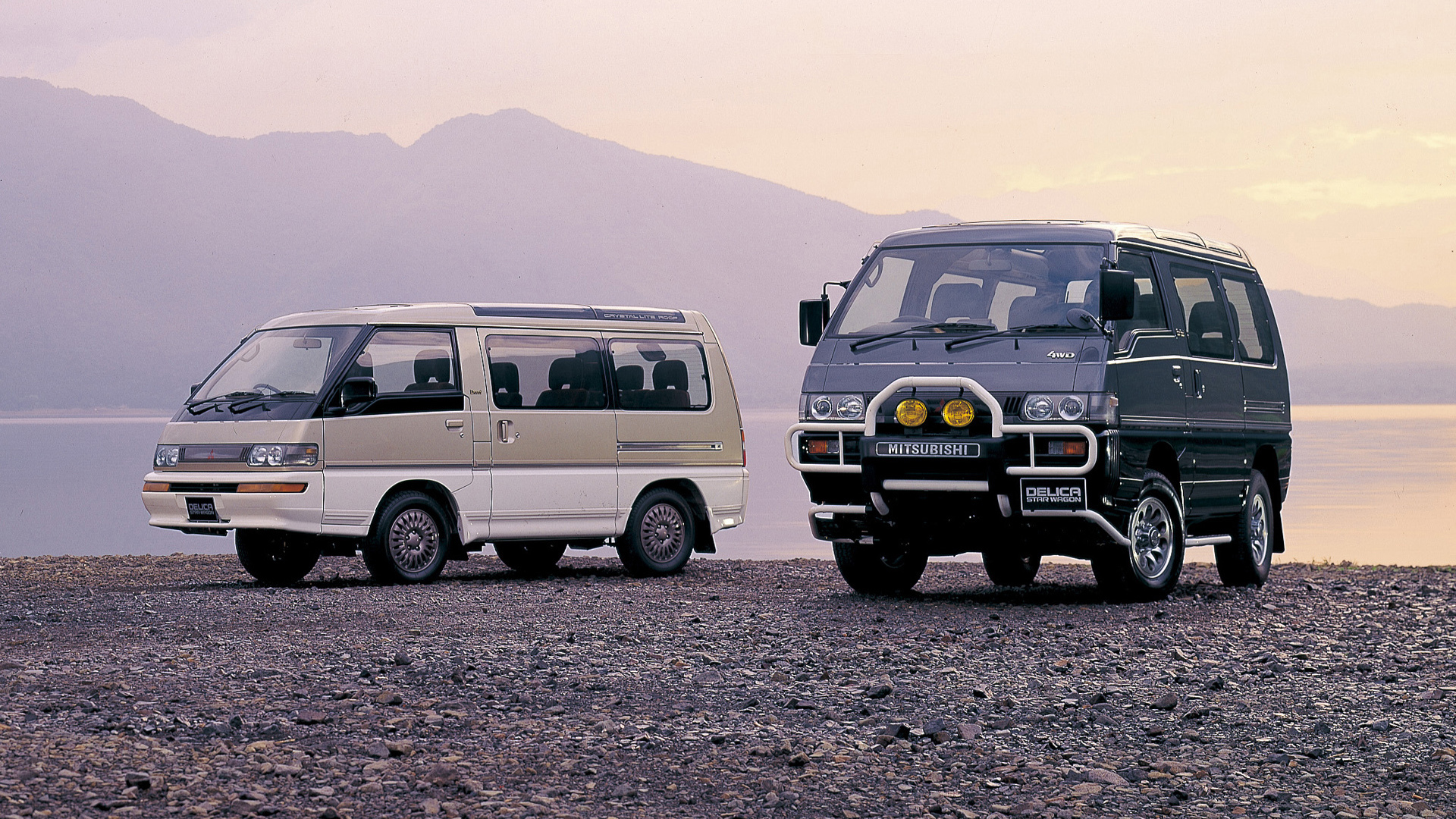

Hi. It’s me, your local Mitsubishi minivan crank, and I have a sleep-deprived, antidepressant-fueled take you didn’t ask for: I think America is ready for the Mitsubishi Delica. You probably think I’m crazy—my coworkers do. But hear me out, because Mitsubishi’s cult hit of a van does what Americans want their SUVs to do, yet is perfect to fill an underserved niche in the U.S. market.
Now, if you’ve clicked this, I imagine you already know what the Delica is and why it’s popular. I’m often wrong, though, so here’s the Delica in a nutshell. It’s a small, spacious van, which has shared its underpinnings with the Pajero (or Montero) SUV for most of its history. There have been a bunch of ruggedized off-road models over the years, but most have been practical, everyday six-to-eight-seaters with a mix of gas and diesel engines. (Some were even sold in the U.S. in the 1980s, but just called the Wagon and Van.) In short, it’s a vehicle with SUV capability, but more efficient packaging.


Plenty of Americans have already noticed that too, because the Delica is among the most popular Japanese cars to import under the 25-year rule. (In fact, it may even be the most popular imported van.) People are already paying through the nose to own Delicas with the headaches of a quarter-century-old, imported right-hand-drive van; there are bound to be more who would love what it offers, but want something newer and more suitable for their roads.
Then there’s the fact that vans are gaining traction in the States—as campers, as off-roaders, or even both in the case of the 2023 Ford Transit Trail. But toughened-up Transits or Mercedes don’t have the dedicated following the Delica does, nor do they have as much individuality. There’s a certain weirdness about a Delica, and it could be an asset to Mitsubishi as it tries to mount a comeback on our shores.
Admittedly, there are a lot of complications with selling the Delica here. It’d begin with the U.S. homologation process, which seems to start at about $10 million as I learned while researching why the Volkswagen California camper isn’t sold here. Mitsubishi isn’t exactly swimming in cash, and it’s one of the smallest players in the U.S. market. It’s on track for about 100,000 sales in 2023. To put that in perspective, even the modest Mazda achieved 294,908 in 2022. (The Ford F-series alone pulled over 653,000 sales last year, by the way.)


There’s also the question of whether the Delica could pass U.S. crash and emissions standards, which is a twofold problem. For one, it wasn’t designed to meet our standards in the first place, and for two, the current model is a Carlos Ghosn-era holdover. It may have been updated in 2019, but the van underneath dates back to 2007. The business case for the current Delica in the U.S. is, frankly, fraught with challenges.
That could soon change though, as a new Delica is on the horizon. In the March presentation that confirmed an electric pickup truck within the next five years, Mitsubishi confirmed plans to introduce new, unspecified hybrid and ICE multipurpose vehicles—perhaps a new Delica, considering the recently launched Delica Mini kei van has already made the jump to electrification. Those MPVs, however, don’t figure into the brand’s product debuts through 2025, so they’re more likely coming in 2026 at the soonest.
It’s hard to see any automaker swooping in and filling the Delica’s niche by then. That new Ford Transit Trail has already dropped off most people’s radars, and American makes are too fixated on the biggest, heaviest electric pickup trucks and SUVs to invest in much else. Besides, as Americans stretch their dollars further, shoppers may consider migrating back to vans for their superior space-per-dollar.
Some will buy into the revived romanticism of the VW ID.Buzz, but not every American is willing (or can afford) to switch to an EV. That’s where the Delica can step in—and already has, with more and more reaching our shores every day, no matter how hard Maine tries to stop them.
Got a tip or question for the author? You can reach them here: james@thedrive.com